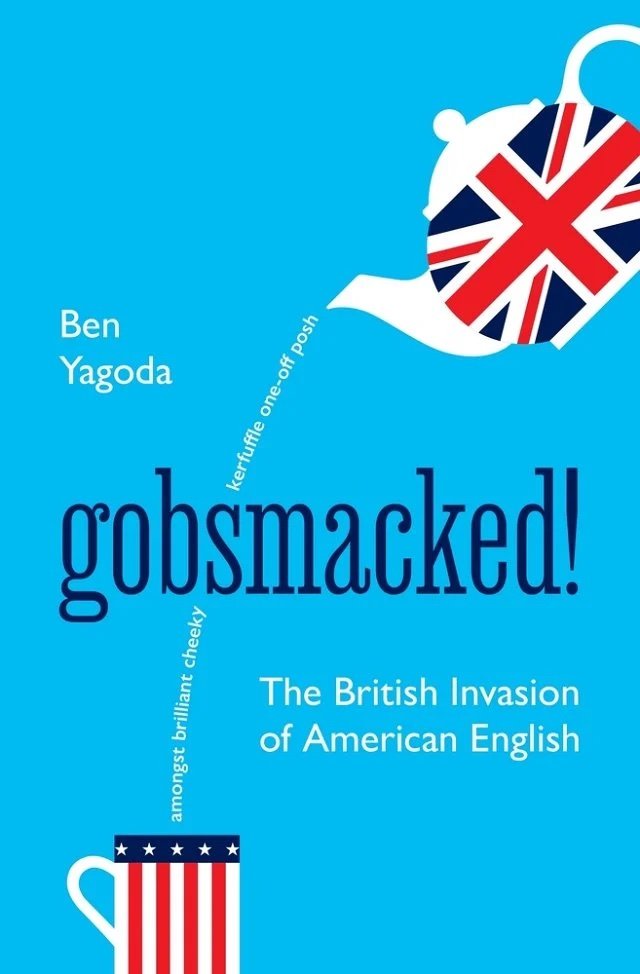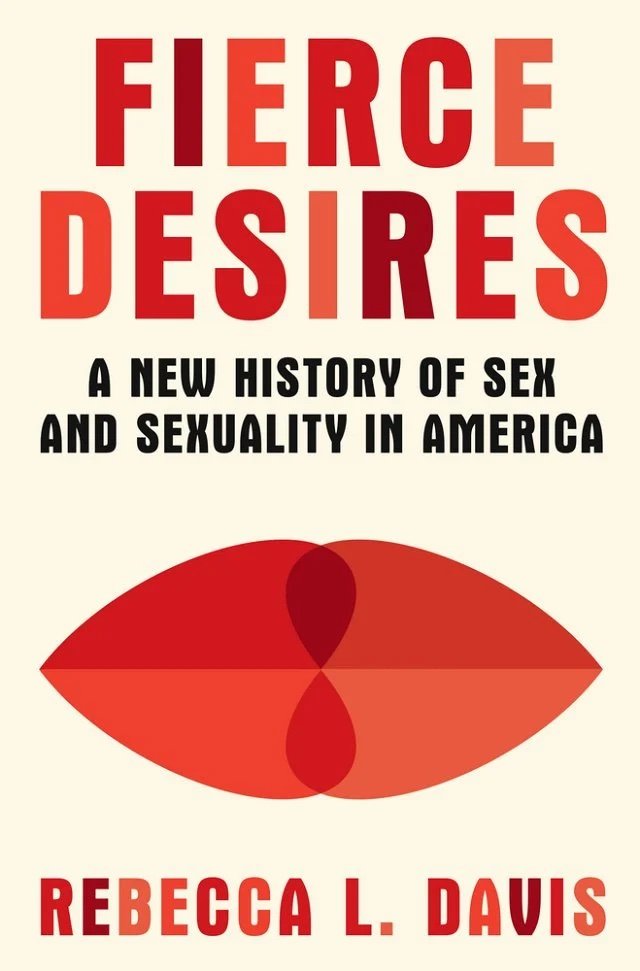First Events: On British Language and American Sex
People say New York is a great city for writers, and I won’t dispute that. But I wouldn't be surprised if my small town of Swarthmore, Pennsylvania, had more published authors per capita than even Brooklyn.
Celia Bookshop won’t be open in bricks-and-mortar until the fall, but our events series launches this month with author appearances by two Swarthmore writers I love: Ben Yagoda (Monday, March 10 at 7PM on Zoom–register here) and Rebecca Davis (Tuesday, March 18 at 7 PM in person at the Unitarian Universalist Church of Delaware County).
Both are people I’ve known for years, so I’m going to refer to them by their first names here.
Ben–a journalist who has written on a broad range of topics including popular music, The New Yorker magazine, and Will Rogers–is out with a breezy, informative, addictive new book, Gobsmacked! The British Invasion of American English. Billed as “a spot-on guide to how and why Americans have become so bloody keen on Britishisms–for good or ill,” it explores the way language washes back and forth across the Atlantic and speculates about why.
The idea here is that–although the British like to complain about Americanisms mucking up British English–British expressions have lately been flooding onto US linguistic shores. Have a go, no joy, suss out, shambolic. Cheeky, knickers in a twist, good on you! For each word or phrase, Ben swiftly and amusingly traces its history and trajectory, evaluates the extent to which it does or does not add value to American English, and assesses its current level of adoption: on the radar, emerging, taking hold, or outpaced.
Naturally the “Insults and Naughty Bits” chapter is particularly fun, especially because small differences in spelling and pronunciation can have such different implications (fecking, shite, arse). There’s a fascinating entry on the beautiful confusions between “can’t be arsed” and “can’t be asked.” There are delightful sports term entries, food-and-drink entries, and pop-culture references to delight readers of every age (Harry Potter, Chitty Chitty Bang Bang, and of course Austin Powers: The Spy Who Shagged Me).
In his talk, Ben will describe how he got interested in the topic of Britishisms, take us on a tour of a few intriguing examples, and offer a behind-the-scenes look at the tools of his trade. You can get a preview of what he’s up to by checking out his long-standing blog, Not One-Off Britishisms. Or go ahead and buy the book from Celia Bookshop here.
Again, you can register for the March 10 Zoom event here.
Rebecca Davis’s Fierce Desires: A New History of Sex and Sexuality in America is a definitive account of this important and timely subject, and an utterly delightful read. Rebecca is a history professor at the University of Delaware who knows this material deeply, and she has a gift for selecting stories, quotations, and perspectives that make one feel enlightened but not overwhelmed.
A quick tour of the first lines of some of her chapters gives you a sense of her voice and her knack for drawing the reader in:
Two people in colonial Virginia shared a bed, which was common enough in the early modern Atlantic world.
Alice Mitchell, age nineteen, thought about murder while she sat at a desk in her parents’ home in Memphis in August 1891.
“We celebrated Groundhog Day with a small sex party.”
There is plenty of human drama here, and also a welcome amount of information that I had no idea historians had access to about how people in the past thought about and understood sex, sexual identity, gender, and desire–what was considered normal, illegal, or acceptable under certain circumstances but not others.
Refreshingly, Rebecca explores the attitudes and practices not just of people of European descent but of Native Americans, the enslaved, and immigrants from Asia as well.
Just a few of the many specific pleasures of this book:
Learning about eighteenth-century “bundling” in which young people got into bed together at night for sexual play: “a parent whose daughter ‘bundled’ with a suitor would have known whom to hold responsible (and pressure into marriage) if she became pregnant.”
A fascinating chapter on the Mormons.
A detour into early twentieth century “Japonisme”–a culture of elite white people attracted to Japanese art and culture, often in the context of private clubs where kimonos were worn and queer sex was on the program.
Rebecca covers crucial figures like Anthony Comstock (oh, the horror), Alfred Kinsey (refreshingly open in the 1940s), and Anita Hill (whose brave performance, if it did not spare us Clarence Thomas, did motivate a generation of women to run for public office).
I was seduced by the many personal stories here, but the most important thing I learned was what should have been the most obvious: that sexuality–like everything else–has a history.
Like Ben, Rebecca also has a terrific blog, Carnal Knowledge, about gender, sexuality, and American politics. And if you won’t be able to make it to the event, you should definitely still buy her book, which you can do by clicking here. The audio version is available on Libro.fm here.
Rebecca Davis’s talk on March 18 at 7 PM, “Sex and Sexuality in American History: Connecting the Past and Present,” is presented by the Unitarian Universalist Church of Delaware County (UUCDC) and Delco Dudes. It’s free and open to the public at the UUCDC, 145 W. Rose Tree Road, Media, Pennsylvania.
To receive this newsletter in your inbox, please sign up here.



